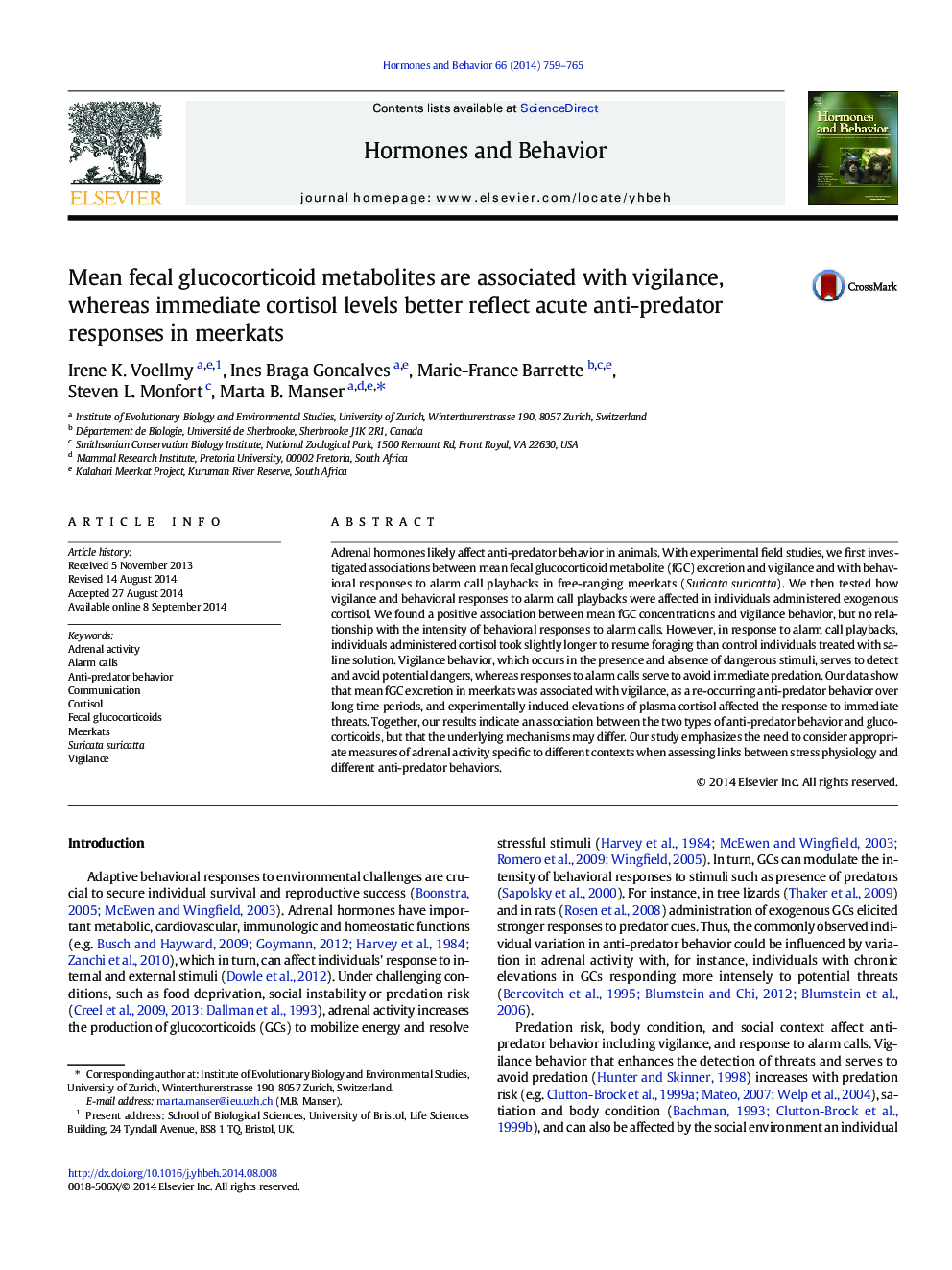| کد مقاله | کد نشریه | سال انتشار | مقاله انگلیسی | نسخه تمام متن |
|---|---|---|---|---|
| 322698 | 540215 | 2014 | 7 صفحه PDF | دانلود رایگان |
• Measuring mean fecal glucocorticoid metabolites in relation to anti-predator behavior in meerkats.
• Vigilance correlates to mean fecal glucocorticoid metabolites.
• Administered cortisol increased immediate response duration to alarm call playbacks.
• Endocrine states affected by time frames differing for each behavioral context.
Adrenal hormones likely affect anti-predator behavior in animals. With experimental field studies, we first investigated associations between mean fecal glucocorticoid metabolite (fGC) excretion and vigilance and with behavioral responses to alarm call playbacks in free-ranging meerkats (Suricata suricatta). We then tested how vigilance and behavioral responses to alarm call playbacks were affected in individuals administered exogenous cortisol. We found a positive association between mean fGC concentrations and vigilance behavior, but no relationship with the intensity of behavioral responses to alarm calls. However, in response to alarm call playbacks, individuals administered cortisol took slightly longer to resume foraging than control individuals treated with saline solution. Vigilance behavior, which occurs in the presence and absence of dangerous stimuli, serves to detect and avoid potential dangers, whereas responses to alarm calls serve to avoid immediate predation. Our data show that mean fGC excretion in meerkats was associated with vigilance, as a re-occurring anti-predator behavior over long time periods, and experimentally induced elevations of plasma cortisol affected the response to immediate threats. Together, our results indicate an association between the two types of anti-predator behavior and glucocorticoids, but that the underlying mechanisms may differ. Our study emphasizes the need to consider appropriate measures of adrenal activity specific to different contexts when assessing links between stress physiology and different anti-predator behaviors.
Journal: Hormones and Behavior - Volume 66, Issue 5, November 2014, Pages 759–765
